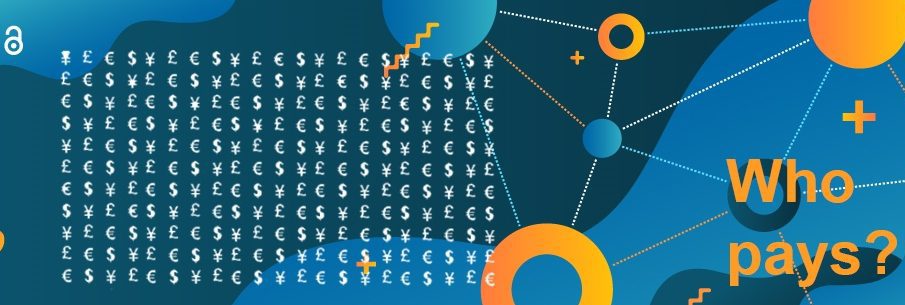
October 22, 2019, by Lisa Chin
Open Access week 2019: Who pays?
This is posted on behalf of Professor Deborah Hall, Vice Provost (Research & Knowledge Exchange).
Publishers are businesses that make money out of managing academic journals. Academic publishers have two main income streams (excluding advertising revenue). The first income stream is from reader subscriptions. For example, our library at UNM pays publishers through annual journal subscriptions so that it can make them accessible to academic staff and students. This is the traditional model. The second income stream is from Article Processing Charges (APCs). APCs are publication fees which are charged to make individual pieces of work available open access.
APCs cover the indirect costs of running a publishing business such as salaries, web-hosting and maintenance, advertising, and marketing, as well as profit to shareholders. APCs also cover the direct costs of processing and publishing an article (e.g., editorial work, copy editing, typesetting).
Hybrid journals
Hybrid journals get most of their income from reader subscriptions without charging authors. But many give you the option of immediate ‘gold’ open access on payment of an APC. For example, for those in FOSE, over 100 IEEE Transactions, Journals, and Letters offer hybrid publication.
Open access journals
In contrast, open access journals only publish work for an APC. For example, the Frontiers family of journals offset all of their commercial costs through APCs. The APC may be paid by the author, the author’s institution, or their research funder.
How much does it cost?
According to one internet source, APCs in 2016 averaged at £1,969. Its interesting to learn that the average APC for hybrid journals is higher than APCs from full open access journals (£2,095 compared to £1,640). Some publishers do consider requests for a fee waiver in cases of financial hardship or geographic location, but this is not a widespread practice. Despite APCs being around RM10,000, when converted into Ringgits from USD, UK pounds or Euros, Malaysia is not considered a low-income country by the World Bank and so there would need to be special circumstances for any request for a fee waiver to be approved.
If you are fortunate enough to have a grant which covers APCs, then you need to make sure that your article is accepted for publication while the grant is still active (i.e. before the end date of your Memorandum of Agreement). You should not spend money after the grant has ended, without written permission from the funder. Make sure you consider this before you submit to an open access journal because if your work is accepted after the grant has ended, then you could be personally liable to pay the APC.
One tactic that’s helped me to publish in an open access journal when I haven’t had grant funding, is to negotiate an agreement with all of my co-authors that the burden of the fee is shared across everyone…. And of course, another tactic is to co-author my work with colleagues who have access to sources of funding!
-
Post a comment
